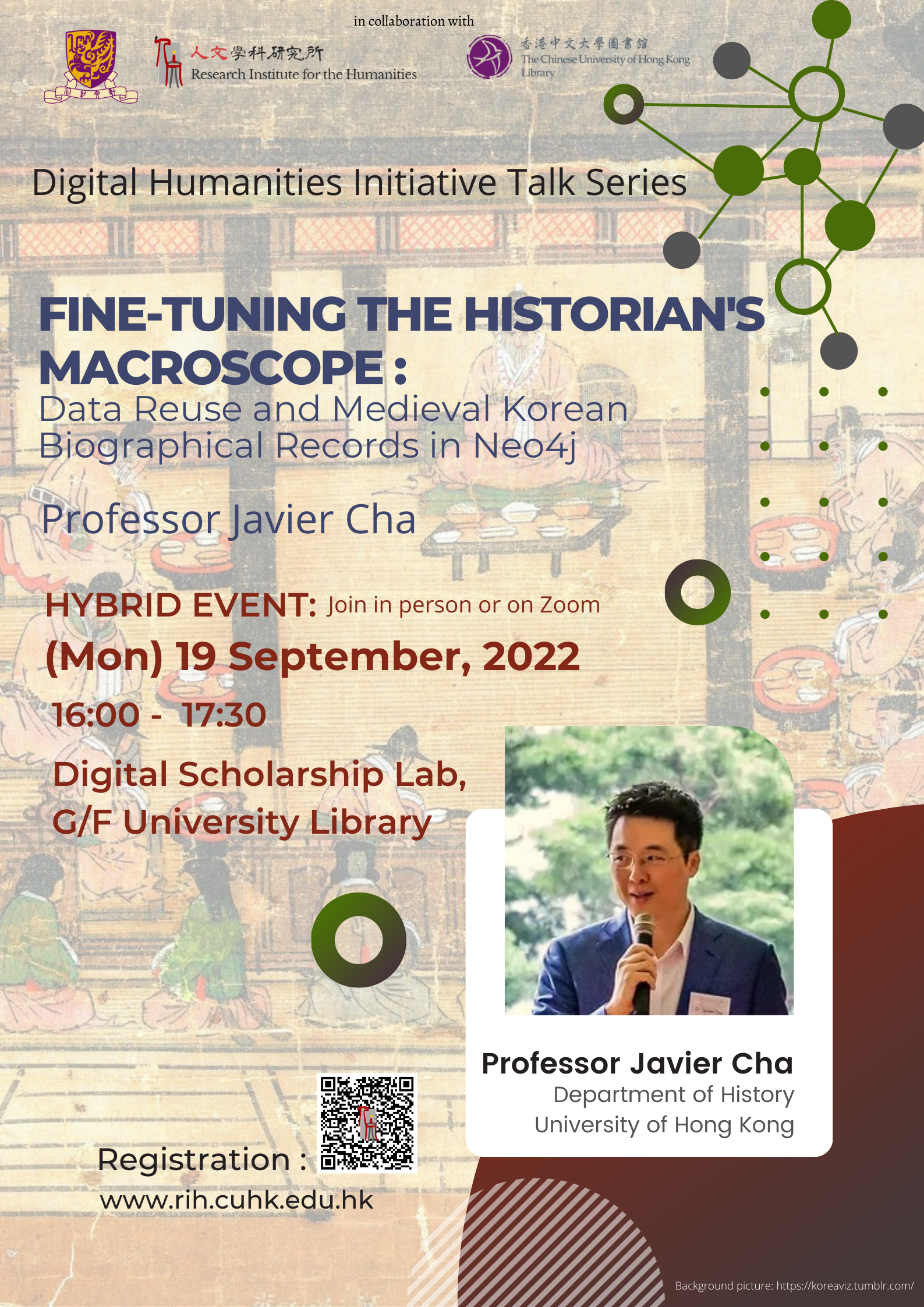Fine-Tuning the Historian’s Macroscope: Data Reuse and Medieval Korean Biographical Records in Neo4j
DIGITAL HUMANITIES INITIATIVE TALK SERIES
Speaker: Professor Javier Cha, Department of History, The University of Hong Kong
Date: Monday, 19 September 2022
Time: 16:00 –17:30
Hybrid event: in person or on Zoom
Venue: Digital Scholarship Lab, G/F University Library
Medium of Instruction: English
Registration: https://bit.ly/3q3ryqy
Registration Deadline: 16 September 2022 (Friday)
About the event
Fine-Tuning the Historian’s Macroscope: Data Reuse and Medieval Korean Biographical Records in Neo4j is part of the Digital Humanities Initiative Talk offered by the Research Institute for the Humanities of the Chinese University of Hong Kong in collaboration with the University Library.
In this talk, Prof. Cha will show us how to break new ground on digital historical scholarship. Prof. Cha will propose the idea that historians build project-specific personal libraries rather than engage in macro-level “distant readings” of a centralized repository. His methodological intervention emphasizes contextualization and authentication in data-driven historical research, which, in technological terms, translates into robust management of records culled from a variety of pertinent databases. Using medieval Korean biographical records as an example, Prof. Cha will demonstrate how digital historians can use a Neo4j-powered macroscope to zero in on potentially insightful fields of view.
About the speaker
Prof. Javier Cha is an Assistant Professor of History at the University of Hong Kong. As an intellectual historian of medieval Korea and a technologist, he has been active in the digital humanities community for fourteen years. Prof. Cha is the director of the Big Data Studies Lab, which examines data centers and the global telecommunications infrastructure in a manner comparable to how a book historian investigates medieval manuscripts and libraries. He serves on the editorial boards of the International Journal of Humanities and Arts Computing and Cursor Mundi, as well as the international nominations committee for Digital Humanities Awards.


